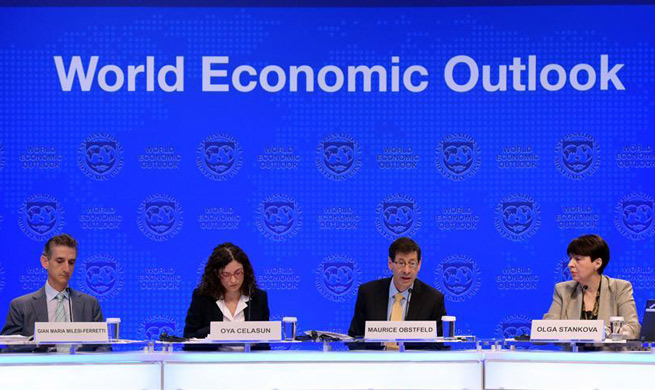CHICAGO, Oct. 10 (Xinhua) -- Money is better than plaudits for creative performance, a study of the University of Illinois (UI) finds.
UI researchers have done five experiments to examine the role of monetary rewards versus social-recognition rewards on creative performance. They found that within the context of creativity contingency, monetary rewards induce "a performance focus" while social-recognition rewards induce "a normative focus."
The conclusion of UI researchers is that monetary rewards enhance one's motivation to be original, thereby leading to more inventiveness in a creative task, while social-recognition rewards hurt it.
"We found that if you tell people to be creative and then give them monetary rewards, they will be more creative," said Ravi Mehta, a professor of business administration at UI.
Mehta said social recognition is "all about people knowing about you and your work, and thereby influencing one to act more in accordance with social norms," whereas creativity means "coming up with something different, something novel, something that is not the norm."
"As adults, we don't want to come up with something that's too radical, too out-there, especially when we know that our peers will be judging us," he said. "Most of our daily activities as working adults are about adhering to social norms. We don't want to stand out too much."
But when a monetary reward is dangled, people amplify up their performance and consciously try to "blow the doors off the competition" in terms of creativity, Mehta said.
"When you ask someone to be creative, you're asking them to be transgressive, to think beyond social norms and thought processes that are not automatic," Mehta said. "That's why a social-recognition reward kills creativity, because it makes creators more risk-averse. It appeals to conformity, to not standing out, which drives you to the middle, not the edge. It compels you to fall in line with social norms, and there's less motivation to be creative."
People who value creativity value the bizarre and the stuff that's out there. Therefore, they're less likely to care about the approval of others, or a sense of belonging with their peers.
The research has practical applications for how people generate creative ideas, and how to motivate creative-class employees.
"There's a trend among companies for crowdsourcing ideas or user-generated content," Mehta said. Virtually all social media is user- or consumer-driven. The study may point them in the right direction: Money talks, but social recognition doesn't.
The research is also applicable to people who work at ad agencies or in creative fields.
The paper will be published in the Journal of Consumer Research.

















